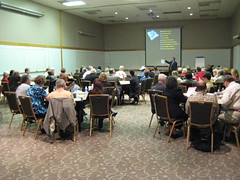Real estate experts estimate that the ticket sizes for this year’s real estate transactions range from less than Rs 10 crore to more than Rs 100 crore.
There was a surge in the quantity of luxury real estate transactions recorded nationally before the close of the fiscal year. The ticket sizes for these properties range from Rs 10 crore to more than Rs 100 crore. Real estate advisors point out that there are financial considerations in addition to the fear of missing out (FOMO) on the most desirable properties in town due to the limited supply of luxury properties, which is one of the main driving forces behind such decisions.
According to them, one of the explanations might be that several investors who have profited from the financial markets are booking profits by buying real estate in anticipation of possible election-related volatility.
The range of ticket sizes, which begin at Rs 10 crore and go up to over Rs 100 crore, is another trend that has come to light. They suggested that this might be because of the Rs 10 crore cap on long-term capital gains reinvestment under Section 54F enacted in the Budget in 2023.
Here are a few recent high-value deals that happened in Mumbai and Delhi-NCR.
A 10,000-square-foot apartment at the Cameliias by DLF on upscale Golf Course Road in Gurgaon recently sold for Rs 95 crores.
For Rs 10 crore, Bollywood actor Mrunal Thakur and her father bought two apartments from Kangana Ranaut’s family in Mumbai’s Andheri West neighborhood.
Earlier this year, eight members of the Halan family—investors in stocks and other asset classes– paid a total of Rs 104 crore for four sea-facing twin apartments in K Raheja Corp’s opulent south Mumbai project. The apartments total 16,000 square feet.
Vratika Gupta, the creator of the well-known decor brand Maison SIA, paid over Rs 116 crore to purchase an opulent apartment in Mumbai’s Oberoi 360 West.
Demand for luxury homes is not limited to posh areas of Mumbai or Gurugram but also spreads to suburban locations. Krishna Kuppuswami Dasarakothapalli, known for films such as The Family Man, Stree, and Go Goa Gone, bought a duplex in Mumbai’s Goregaon suburb for Rs 30.50 crore this year.
According to Anuj Puri, chairman of ANAROCK Group, sales of ultra-luxury homes (worth more than Rs 40 crore each) have experienced an unparalleled surge in CY2023, setting new records for both quantity and quality. According to the most recent data from ANAROCK Research, the total sales value of ultra-luxury homes increased by an astounding 281% in CY2023 compared to CY2022.
He continues, “CY2023 has already made Indian real estate history in ultra-luxury property sales before it is over.”
Additionally, of the 62 ultra-luxury homes sold in CY2023, at least 12 had prices above Rs 100 crore, compared to just nine in 2022, according to Anarock data. In 2023, fifty opulent residences were sold for amounts between Rs 40 crore and Rs 100 crore. There were only four deals in this price range in 2022.
He continues, “This demonstrates the country’s current appetite for ultra-luxury homes.”
According to Amit Goyal, Managing Director of India Sotheby’s International Realty, who spoke with HT Digital, there has been an increase in high-end real estate transactions toward the end of the fiscal year.
Many investors who have profited from the stock market are now real estate investors. After all, the stock market is expected to remain volatile during the elections.
“That is to say that ticket sizes are smaller than last year after the announcement in Budget 2023 and the changes to Section 54 and 54F went into effect,” he added.
According to him, a surge of transactions surpassing Rs 100 crores was recorded in March 2023 as an increasing number of wealthy individuals utilized their earnings to acquire real estate before April 1, 2023, when the exemption from long-term capital gains tax for buying residential properties was limited to Rs 10 crores.
According to Ritesh Mehta, Senior Director and Head of Residential Services & Developer Initiatives, West and North, JLL, several buyers are investing in real estate, the majority of which they intend to use for their use and booking profits from the share market.
“This is one of the causes of the comparatively small ticket size compared to the prior year. Most of the deals in the previous year were above Rs 90 crores, especially after the long-term capital tax exemption for purchasing residential units at Rs 10 crores. Before the end of the fiscal year, most deals in the premium segment range from Rs 10 crores to more than Rs 100 crores,” he said.
In the future, he says, “the trend is expected to continue.”
